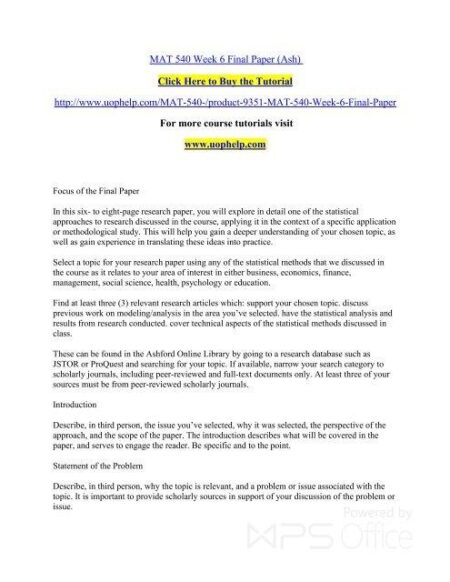In a significant development in West African geopolitics, President Alassane Ouattara of Ivory Coast announced the impending withdrawal of French military forces stationed in the country. This decision marks a pivotal moment in the long-standing military cooperation between Ivory Coast and France, reflecting evolving sentiments towards foreign intervention in the region. As the last remnants of France’s colonial influence dissipate,the withdrawal underscores a shift towards greater national sovereignty and self-determination for Ivory Coast.This article delves into the implications of this decision, the historical context surrounding French military presence in the country, and reactions from both local and international stakeholders.
French Military Withdrawal: Implications for ivory Coast’s Security Landscape
The decision by French authorities to withdraw military forces from Ivory Coast marks a pivotal shift in the region’s security dynamics. as foreign troops conclude their longstanding presence, questions arise regarding who will fill the security void. The Ivorian Armed Forces may need to ramp up training and resources to ensure national defenses can effectively counter potential threats. Observers worry that the withdrawal could embolden extremist groups in the Sahel region, where security remains tenuous and militant activity has seen an upswing. Additionally, the rising sentiment for national sovereignty among Ivoirians complicates the future of foreign military presence, despite the risks posed by regional instability.
Furthermore, the implications extend beyond military concerns; economic stability relies heavily on a secure environment. The commencement of the withdrawal may trigger shifts in international investment attitudes. An effective transition plan will be crucial to maintaining security cooperation with global partners who may provide alternative training and support mechanisms. To facilitate understanding,key players in the security spectrum could include:
| Stakeholder | Role |
|---|---|
| Ivorian Government | National defense and policy formulation |
| Regional Allies | collaborative military exercises and intelligence sharing |
| International organizations | Support in governance and capacity building |

President Ouattara’s Vision: Emphasizing National Sovereignty and stability
In a significant move towards reinforcing national autonomy, president Alassane Ouattara announced the planned withdrawal of French military forces from Ivory Coast. This decision aligns with Ouattara’s broader strategy to assert Ivorian independence and foster a sense of national pride among citizens. Emphasizing the need for stability and self-reliance, the president stated that the evolving security landscape necessitates a transition towards an Ivorian-led defense posture, one that reflects both the historical context and current aspirations of the nation. The withdrawal is expected to be executed gradually, ensuring that indigenous forces are prepared to assume complete responsibility for national security.
As part of this transition, several key initiatives will be implemented to strengthen the Ivorian military and enhance its capacity to maintain peace and stability. These include:
- Modernization of military Equipment: Upgrading existing resources to enhance operational effectiveness.
- Training Programs: Collaborating with international partners to provide essential training to Ivorian forces.
- Community Engagement: Building trust and cooperation between military personnel and local populations to foster a secure environment.
To further illustrate the anticipated timeline and status of the withdrawal,the following table provides a brief overview:
| Phase | Activity | Expected Completion |
|---|---|---|
| Phase 1 | Assessment of Local Forces | Q1 2024 |
| Phase 2 | Implementation of training Programs | Q3 2024 |
| Phase 3 | Full Transfer of Security Responsibilities | 2025 |
This strategic realignment represents a pivotal step for Ivory Coast as it seeks to navigate a path toward sustainable stability while affirming its national sovereignty. The move is being met with hopeful anticipation from the populace, who view it as a reclaiming of agency in matters of security and peacekeeping.

Impact on French-Ivorian Relations: Navigating a New Diplomatic Era
The recent announcement regarding the withdrawal of French forces from Ivory Coast marks a significant turning point in the longstanding relationship between the two nations. Historically,france has played a vital role in the region,providing military support and contributing to stability in the midst of political tumult. However, as Ivory Coast has continued to assert its sovereignty and foster regional cooperation, the dynamics of this partnership are evolving. The decision by President Ouattara reflects a growing sentiment within the Ivorian government to prioritize national independence and explore new avenues for international collaboration.
As both nations navigate this new diplomatic era, several key aspects are poised to reshape their interactions:
- strengthened economic partnerships: With military support transitioning towards economic cooperation, sectors such as trade, technology, and infrastructure may see increased French investment.
- Regional collaborations: France and Ivory Coast can leverage their positions within the Economic Community of West African States (ECOWAS) to address common challenges, such as security and trade.
- Public sentiment: The Ivorian populace is increasingly interested in a foreign policy that reflects national priorities, which may lead to a more public-facing dialog in France-Ivory Coast relations.
while the practical implications of this withdrawal are multifaceted, both countries appear ready to redefine their rapport. Building trust and mutual understanding will be essential as they embark on a fresh chapter that respects the aspirations of the Ivorian people while maintaining France’s influence in the region.

Regional Security Concerns: The Role of Neighboring Countries Post-Withdrawal
The impending withdrawal of French forces from Ivory Coast marks a significant transition in the regional security landscape of West Africa.Neighboring countries must now grapple with the security vacuum that could emerge in the aftermath of this military pullout. Nations such as Ghana, Burkina Faso, and Mali are especially pivotal in this shift, as they may become key players in addressing potential security challenges, including the resurgence of insurgent activities or increased cross-border crime. Each country has its own unique security protocols and defense strategies, which may need to be recalibrated to foster cooperation and collective action against common threats.
Moreover, the collaboration among these countries can be further enhanced through new mechanisms for intelligence sharing and joint military exercises.The need for a concerted approach is critical, especially in combating organized crime and extremist groups that have exploited instability in the region.strengthening bilateral and multilateral relations can not only fortify security but also foster economic stability. The following table outlines the potential roles that neighboring countries could adopt in bolstering regional security post-withdrawal:
| Country | Potential Role |
|---|---|
| Ghana | Host joint military drills to improve regional defense cooperation. |
| Burkina Faso | Enhance border patrol collaboration to prevent trafficking and insurgency spread. |
| Mali | Participate in regional intelligence sharing frameworks. |

Recommendations for Ivory Coast: Strengthening Internal Security Forces and Governance
To enhance the stability and security within Ivory Coast, a comprehensive approach focusing on the internal security forces is vital. Investment in training and resources for local law enforcement and military units can lead to improvements in operational effectiveness. Moreover, establishing clear communication channels between these forces and civilian authorities will foster trust and cooperation. Important steps may include:
- Enhanced training programs for police and military personnel to improve crisis management skills.
- Resource allocation for modern equipment and technology to strengthen operational capabilities.
- Community policing initiatives aimed at building relationships and understanding between forces and citizens.
Furthermore, governance reform is essential for creating a more accountable and transparent framework. Encouraging participatory governance will not only empower citizens but also provide a platform for addressing grievances. Key recommendations for governance enhancement include:
- Regular audits and evaluations of security functions to ensure compliance and effectiveness.
- Implementation of anti-corruption measures to build public confidence in state institutions.
- Fostering collaboration among various government branches to streamline decision-making processes.

Future Prospects: Economic and Social Challenges in a Changing Geopolitical Environment
The announcement of the withdrawal of French forces from Ivory Coast marks a pivotal moment in the region’s evolving geopolitical landscape. As President Ouattara confirmed this decision, it raises critical questions about the future stability of Ivory coast and its implications for broader West African security. The exit of foreign troops, initially stationed for peacekeeping purposes, reflects both a shift in France’s military strategy and a local push for sovereignty. Though, this transition comes with significant economic and social challenges, particularly as the nation grapples with issues surrounding governance, national identity, and the potential resurgence of unrest.
Several key factors will likely shape the ensuing landscape:
- Economic Stability: A decrease in international military presence could lead to uncertainties affecting foreign direct investments, which are vital for infrastructure development.
- Security Challenges: The potential for increased terrorist activity and civil unrest needs addressing, requiring an enhancement of national security forces.
- Social Cohesion: Ethnic and political divisions exacerbated by the withdrawal may threaten social harmony, demanding initiatives for reconciliation and community unity.
To evaluate the potential impacts, a comparative analysis of prior troop withdrawals in similar contexts may provide insights:
| Country | Year of Withdrawal | Post-Withdrawal Effects |
|---|---|---|
| Mali | 2013 | Increased insurgency activity |
| Afghanistan | 2021 | Rapid government collapse |
| Iraq | 2011 | Resurgence of extremist groups |

The Conclusion
President Alassane Ouattara’s announcement regarding the withdrawal of French forces from Ivory Coast marks a significant shift in the nation’s security landscape and its historical ties with France. As the Ivorian government takes steps toward greater sovereignty and autonomy in handling its own security,all eyes will be on how this transition unfolds in the coming months.The implications of this decision extend beyond military presence, touching on the broader themes of post-colonial relationships and national identity. As Ivory Coast navigates this new chapter, it will be crucial for the government to ensure stability and security for its citizens, as well as to maintain diplomatic relations with France and the international community. The successful execution of this withdrawal could pave the way for a renewed sense of nationalism and self-determination in Ivory Coast’s future.







